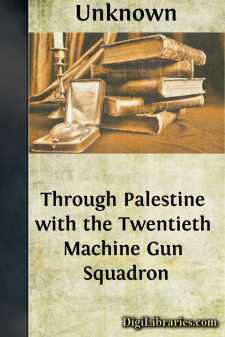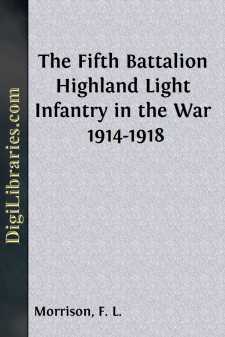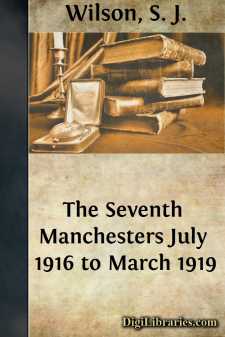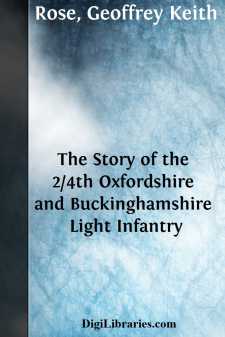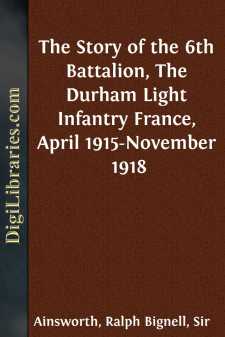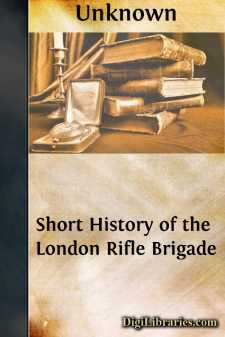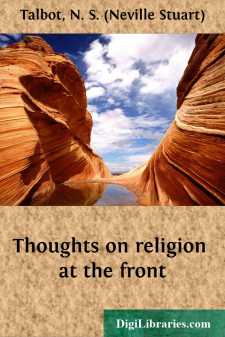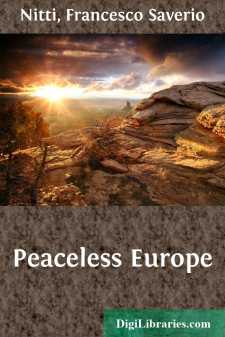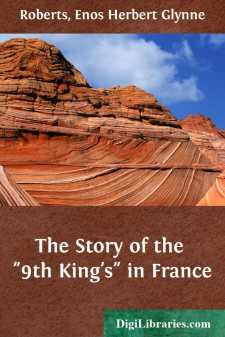History
- Africa 30
- Americas (North Central South West Indies) 50
- Ancient 68
- Asia 58
- Australia & New Zealand 8
- Canada 41
- Caribbean & West Indies 1
- Civilization 20
- Eastern Europe 12
- Europe 310
- Expeditions & Discoveries 60
- General 77
- Historical Geography 1
- Jewish 9
- Latin America 3
- Medieval 8
- Middle East 14
- Military 248
- Revolutionary 8
- Study & Teaching 5
- United States 353
- Western Europe 56
- World 13
History Books
Sort by:
by:
Unknown
PART I. Formation of the Squadron. It was on the 4th July 1917 that authority was given to the 7th Mounted Brigade (then at Ferry-Post, Ismailia), for the formation of a Machine-Gun Squadron to be known as the "20th." It was to consist of "Headquarters" and only three sub-sections, there being but two regiments (instead of the usual three) in the 7th Brigade. On July 4th, Lieut. E.P....
more...
by:
F. L. Morrison
FROM MOBILISATION TO THE EAST. The period from the date of mobilisation to the date on which we began our active service experiences we propose to pass over quickly, as the events which happened then seem now of small interest to those coming later. With orders prepared carefully in peace time, mobilisation went smoothly. The Normal School, Glasgow, became a barracks and a place for the busy public of...
more...
by:
S. J. Wilson
CHAPTER I. Holding up the Turk. In September, 1914, the 7th Bn. Manchester Regiment set out for active service in the East in goodly company, for they were a part of the 42nd (East Lancashire) Division, the first territorials to leave these shores during the Great War. After many interesting days spent on garrison duty in the Sudan and Lower Egypt they journeyed to Gallipoli soon after the landing had...
more...
PREFACE My friend, Major G. K. Rose, has set out to describe the doings of the 2/4th Oxfordshire and Buckinghamshire Light Infantry during the Great War. If I judge his purpose rightly, he designs to paint without exaggeration and without depreciation a picture which shall recall not only now, but more especially in the days to come, the wonderful years during which we ceased to be individuals pursuing...
more...
The "Salient." First Phase. The end of March, 1915, found the 50th (Northumbrian) Division of the Territorial Force awaiting orders to proceed overseas. The infantry of the Division consisted of the 149th Infantry Brigade (4th, 5th, 6th and 7th Battalions Northumberland Fusiliers), the 150th Infantry Brigade (4th Battalion East Yorkshire Regiment, 4th and 5th Battalions Yorkshire Regiment, and...
more...
by:
Unknown
PART I.Formation.The London Rifle Brigade, formerly the 1st London Volunteer Rifle Corps (City of London Rifle Volunteer Brigade), and now, officially, the 5th (City of London) London Regiment, London Rifle Brigade, familiarly known to its members and the public generally by the sub-title or the abbreviation "L.R.B.," was founded July 23rd, 1859, at a meeting convened by the Lord Mayor. It has...
more...
PREFACE I send out this little and fragmentary book with the consciousness that it calls for apology. I have had to write it hastily during a short period of leave. Yet it touches upon great subjects which deserve the reverence of leisurely writing. Ought I not, then, to have waited for the leisure of days after the war? I think not. Such days may never come. And, in any case, now is the time for the...
more...
I EUROPE WITHOUT PEACE Is there anyone who still remembers Europe in the first months of 1914 or calls to mind the period which preceded the first year of the War? It all seems terribly remote, something like a prehistoric era, not only because the conditions of life have changed, but because our viewpoint on life has swerved to a different angle. Something like thirty million dead have dug a chasm...
more...
CHAPTER I. England. Shortly after the commencement of the Volunteer Movement in 1859, many members of the newspaper and printing trades in Liverpool were desirous of forming a regiment composed of men connected with those businesses. A meeting was held in the Liverpool Town Hall, and the scheme was so well received that steps were taken towards the formation of a corps. Sanction was obtained, and on...
more...
Crescent and Iron Cross, Chapter ITHE THEORY OF THE OLD TURKSThe maker of phrases plies a dangerous trade. Very often his phrase is applicable for the moment and for the situation in view of which he coined it, but his coin has only a temporary validity: it is good for a month or for a year, or for whatever period during which the crisis lasts, and after that it lapses again into a mere token, a thing...
more...


